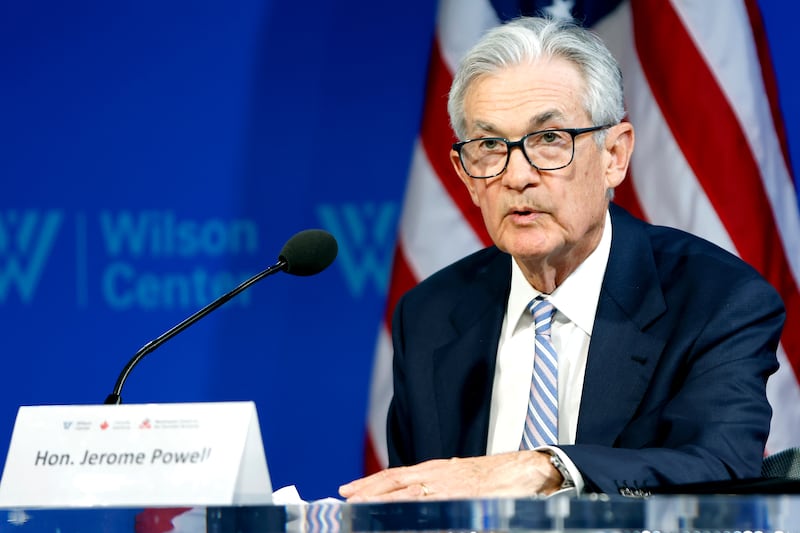Federal Reserve chairman Jerome Powell on Tuesday said he expects recent data to delay the timing of US interest rate cuts after figures indicated the US central bank's fight to restore price stability has stalled.
The Fed has held its target range between 5.25 per cent and 5.50 per cent since the summer and is now considering the timing of cutting interest rates.
Economic data since January has shown the Fed's path to get inflation closer to its 2 per cent target has been bumpy, indicating that other central banks, such as those of the UAE and Saudi Arabia, will maintain restrictive stances as well.
“The recent data have clearly not given us greater confidence and instead indicate that it's likely to take longer than expected to achieve that confidence,” Mr Powell said during a moderated discussion at the Wilson Centre's Washington Forum on the Canadian Economy.
“That said, we think policy is well positioned to handle the risks that we face … if higher inflation does persist we can maintain the current level of restriction for as long as needed.”
The Fed chairman was speaking on the Personal Consumption Expenditures Price Index, the central bank's preferred inflation metric.
PCE inflation remained at 2.8 per cent on a yearly basis, and he said the three and six-month measures “are actually above that level”.
Last week's Consumer Price Index also delivered a serious blow to a potential June rate cut.
The report, which showed headline inflation rising to 3.5 per cent annually, was enough to make traders downgrade their forecasts from three quarter-point cuts this year to two.
Mr Powell said there is “significant space to ease” should the US see a sudden sharp rise in unemployment due to the Fed holding steady for too long.
“Right now, given the strength of the labour market and progress on inflation so far, it's appropriate to allow restrictive policy further time to work and let the data and the evolving outlook guide us,” he said.
Mr Powell and Tiff Macklem, governor of the central bank of Canada, both noted the synchronisation of central banks' response during the onset of the Covid-19 pandemic and the inflationary surge that followed in 2022.
Both central bankers, however, noted the global role the US central bank has in setting monetary policy.
While Mr Powell acknowledged the Fed's domestic mandate, he also touched on the global ramifications their decisions have.
“And that's all the more so because the dollar is the principle reserve currency which strengthens the transmission of our policy to the global economy,” he said.
“So we also know that those effects on gold demand from our policy changes can have an effect on the United States as well, it can rebound the United States.”
The UAE and Saudi Arabia, the two largest economies in the GCC, both follow the monetary policy decisions of the Fed because their currencies are pegged to the dollar.
Mr Powell's remarks came on the sidelines of the IMF and World Bank Spring Meetings, the gathering of the world's finance ministers and central bankers in Washington.
Among the major theme's this year is restoring price stability, as advanced economies prepare to begin pulling back on the restrictive stances they took after a surge in inflation two years ago.
In separate remarks at the Fed building earlier on Tuesday, vice chairman Philip Jefferson also said the US central bank could keep rates elevated.
“Of course, the outlook is still quite uncertain, and if incoming data suggest that inflation is more persistent than I currently expect it to be, it will be appropriate to hold in place the current restrictive stance of policy for longer,” Mr Jefferson said.
New York Fed President John Williams, who holds a seat on the Federal Open Market Committee, said on Monday that he still expects rate cuts will come at a later point this year and that the US economy will continue to grow despite high interest rates.






